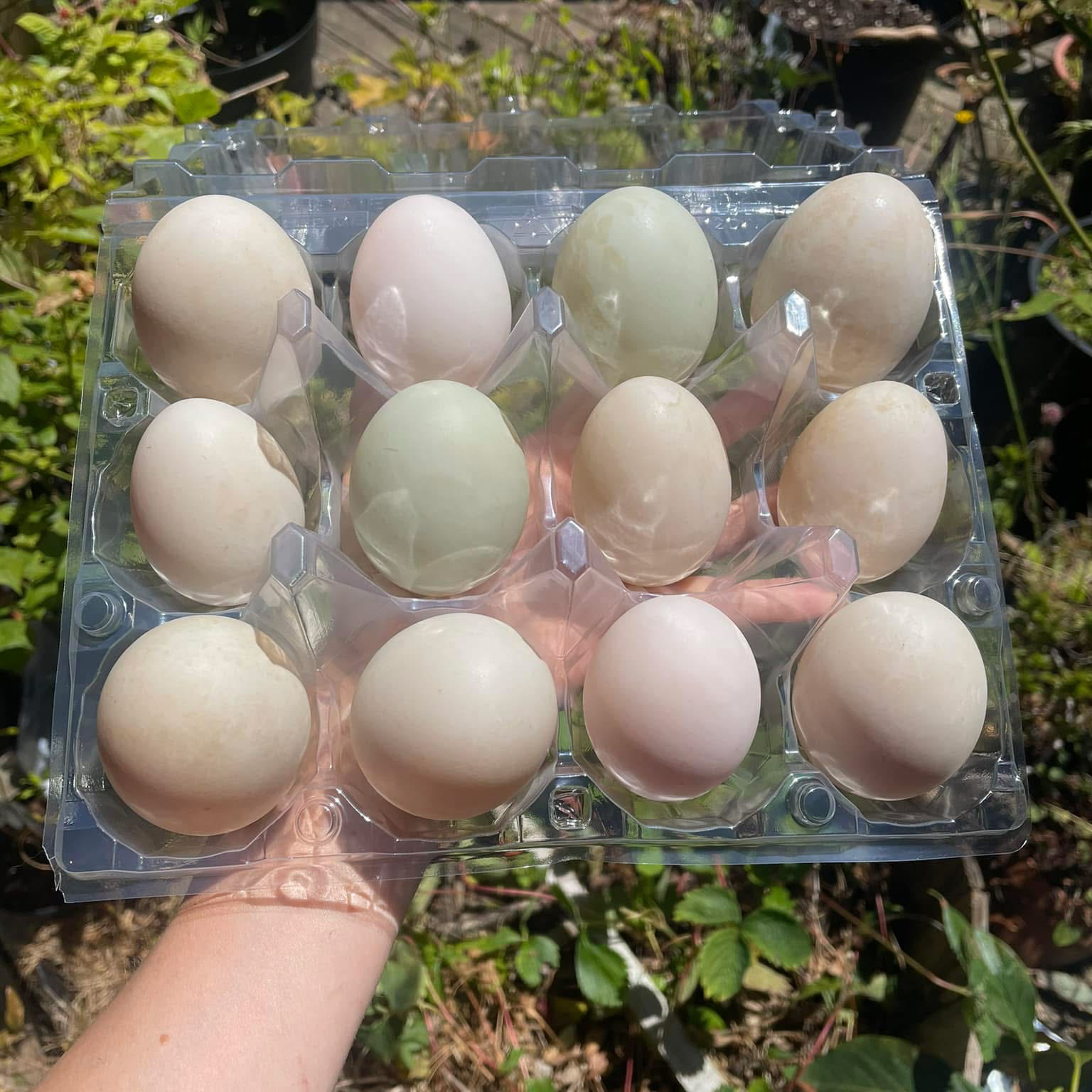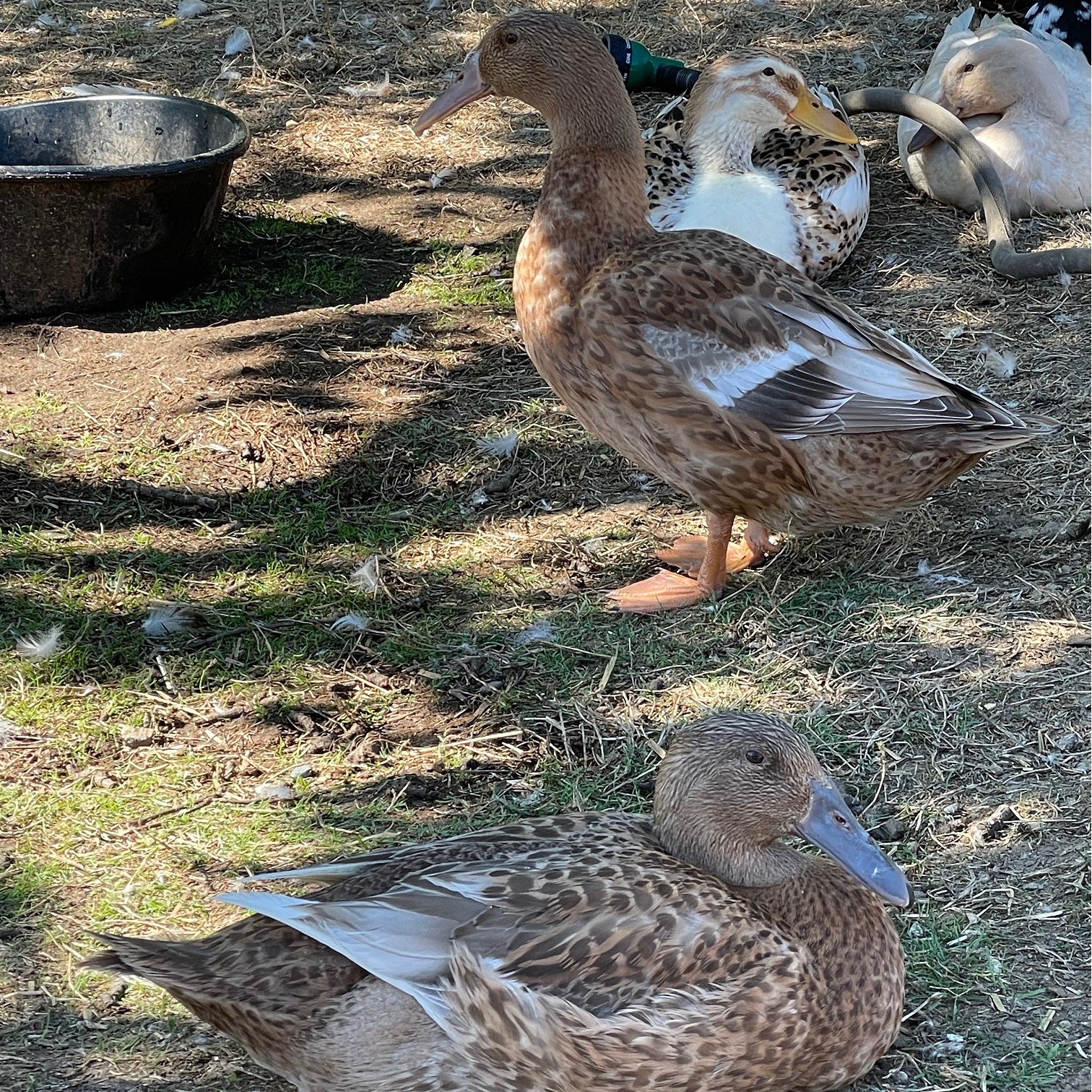Producer


Honeyfeather Farm
Contact: Megan and Brian
City: North Bend, OR, 97459
Phone: 541-297-0199
Website: honeyfeatherfarm.com
About Us
Honeyfeather Farm was established in January of 2021 as an urban farm in Coos Bay, Oregon. We are now located about 10 miles further north in Hauser, on a 17-acre farm that has now been in our family for three generations. For nearly a century this land provided fresh garden produce, orchard fruit and nuts, beef, and dairy to customers throughout Coos County. After the passing of Megan’s grandparents, however, the farm was managed by nature for more than 20 years.
We currently offer duck and goose eggs from our flock but we expect to also include honeybee products from our hives in the future. Restoring the farm to full working order will take quite some time but will allow us to also offer produce from our orchard trees, which so far include apples, pears, cherries, plums, peaches, walnuts, and figs. Our website and other social media presence will document our progress as we rescue our orchard and fields from more than 2 decades of overgrowth.
We currently offer duck and goose eggs from our flock but we expect to also include honeybee products from our hives in the future. Restoring the farm to full working order will take quite some time but will allow us to also offer produce from our orchard trees, which so far include apples, pears, cherries, plums, peaches, walnuts, and figs. Our website and other social media presence will document our progress as we rescue our orchard and fields from more than 2 decades of overgrowth.
Practices
Our poultry flock is supervised free range during the day, allowed to forage on nearly an acre of fenced garden, lawn, and orchard grass. In addition they are fed fresh cuttings of grass and young wheat that we gather while weeding, live mealworms that we raise here on organic garden scraps, and are also given trim from our garden produce. They are provided secure shelter overnight to protect them from predators and the elements.
Our beehives are the “top bar” style that is favored in much of Sub-Saharan Africa. They do not produce as much honey as the more common Langstroth style hives but they more closely mimic the natural spaces that the bees would have chosen for themselves in the wild. This makes it much easier for them to regulate their living conditions. We keep our interactions with them to the absolute minimum necessary to ensure their health and safety.
We have not been at our site long enough for any of our operations to qualify for organic certification and we do not wish to spray our crops as extensively as that requires. However, we manage our flock with organic practices, and extend that to our fields, garden, and orchard, as well.
Our beehives are the “top bar” style that is favored in much of Sub-Saharan Africa. They do not produce as much honey as the more common Langstroth style hives but they more closely mimic the natural spaces that the bees would have chosen for themselves in the wild. This makes it much easier for them to regulate their living conditions. We keep our interactions with them to the absolute minimum necessary to ensure their health and safety.
We have not been at our site long enough for any of our operations to qualify for organic certification and we do not wish to spray our crops as extensively as that requires. However, we manage our flock with organic practices, and extend that to our fields, garden, and orchard, as well.
